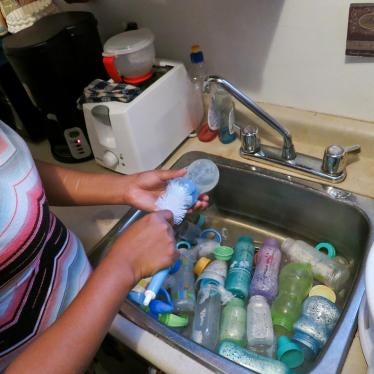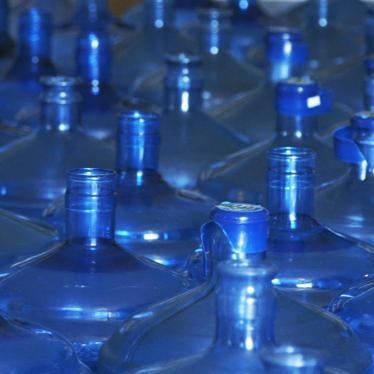Dear Prime Minister Trudeau,
I write to you today to express Human Rights Watch’s deep concern that Neskantaga First Nation is once more in a state of emergency due to its inadequate water infrastructure.
Human Rights Watch conducted research in First Nations communities in the province of Ontario between July 2015 and March 2016 to understand why problems with water and sanitation services persist, alongside the social and human rights impacts of these problems, including in Neskantaga.
I was in Neskantaga the night of your first election in October 2015. There was great hope that campaign promises would translate into the end of the decades-long boil water advisory. However, the completion of a long-term solution has been plagued by challenges and delays, and now the collapse of the existing system concurrent to a global pandemic is an urgent concern.
We have long welcomed your government’s stated goal to end all long-term boil water advisories in First Nations and have publicly applauded some of your efforts to increase transparency regarding progress and delays towards this goal. However, these current efforts are insufficient to end the water crisis in First Nations communities. There is a human rights imperative for swift action by your government.
The government’s own audits have shown a pattern of overpromising and underperforming, with little accountability for outcomes. Past investments of billions of dollars over decades have not translated into safe drinking water for thousands of First Nations people living on reserve. Our 2016 research laid bare that funds need to be accompanied by enforceable regulations, increased accountability, and clear planning to address past failures. Human Rights Watch found that the lack of enforceable regulations and the contested nature of the Safe Drinking Water for First Nations Act perpetuate an accountability gap enabling the design and construction of systems that do not meet the Guidelines for Canadian Drinking Water Quality or the Indigenous and Northern Affairs Canada protocols in place at the time. In addition, erratic and insufficient capital, operations and maintenance funding for water and wastewater on reserves privileges short-term execution over long-term, sustainable solutions. The operators who cope with the flawed First Nations water and sanitations systems have patchy training and live in fear of a catastrophe in their community.
Nowhere is that more clear than in Neskantaga First Nation.
Consistent with our recommendations and findings in 2016 and in solidarity and support of the people of Neskantaga, we reiterate their requests to your government:
- Running water should be available from the taps on a 24-hour basis, even if a boil water advisory still exists, only as an interim solution;
- Two (2) portable membrane package water treatment units need to be immediately mobilized/installed in the community so that clean drinking water can be produced to mitigate the effects of the crisis, and before damage to the system from cold temperatures;
- Immediately undertake an extensive certified plumbing survey of all residences and unoccupied lots to assess and repair leaks and additional system loads;
- Given that the current water treatment and distribution system has been a patchwork of ‘Band-Aid’ solutions since first being repaired (1994-present), government should promptly assess the feasibility of continuing with repairing a flawed system versus the design and construction of a new water distribution system that meets the highest current standards;
- Decontamination of homes and associated repairs of water hardware (pipes, sinks, taps, faucets) in disrepair caused by the crisis;
- An investigation into business practices of contractors, engineering companies, etc.;
- An investigation/evaluation of contributing factors to the current water and public health crisis;
- Fund a full-time qualified water treatment plant operator in the community 24/7 for a period of at least five (5) years, with residence provided by Indigenous Services Canada, to ensure smooth operations and transitions; and
- Implement a multi-year change management strategy focused on building trust in tap water safety after decades under boil water advisory.
Please do not hesitate to contact me with questions.
Thank you for your consideration.
Sincerely,
Amanda Klasing
Co-Director (Interim), Women’s Rights
Human Rights Watch
CC:
Chief Chris Moonias, Neskantaga First Nation
Grand Chief Alvin Fiddler, Nishnawbe Aski Nation
Ontario Regional Chief RoseAnne Archibald, Chiefs of Ontario
National Chief Perry Bellegarde, Assembly of First Nations
Minister Marc Miller, Indigenous Services
Minister Carolyn Bennett, Crown-Indigenous Relations and Northern Affairs Canada
Minister Catherine McKenna, Infrastructure and Communities
Minister Patty Hajdu, Health







